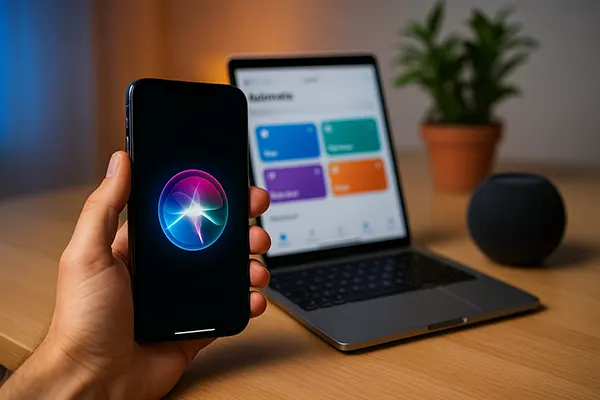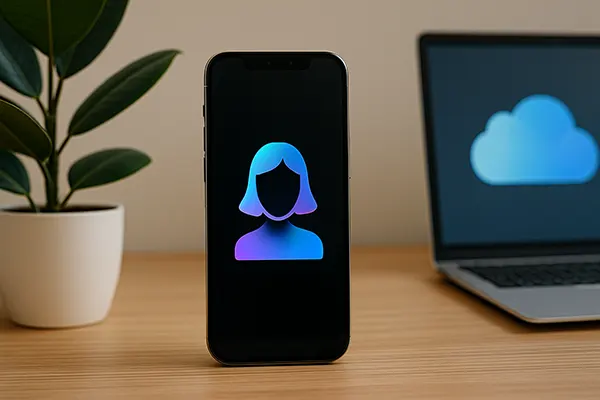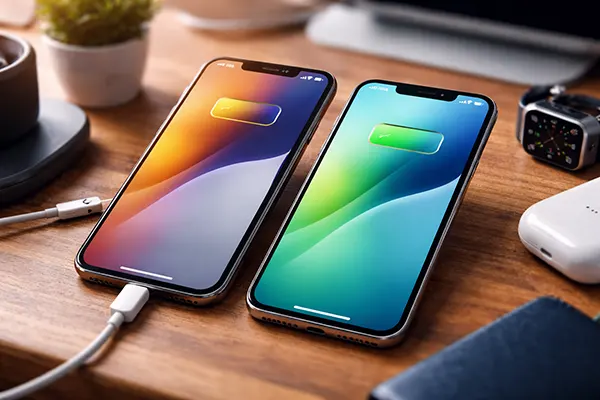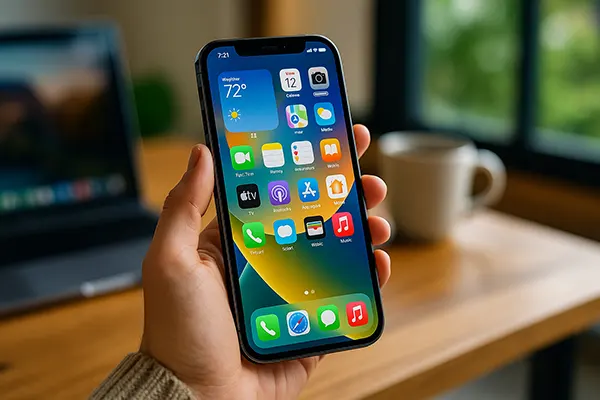How Artificial Intelligence Works on iPhone in 2025: Siri, iCloud and Privacy

In 2025, Apple continues to integrate artificial intelligence deeply into the iPhone ecosystem. With the latest iOS updates, users gain access to smarter tools that not only enhance day-to-day tasks but also ensure maximum data privacy. The evolution of AI on iPhones now encompasses generative features, personalisation, and on-device computing — all aimed at giving users more control and convenience.
New Siri Capabilities: Smarter Than Ever
Apple has transformed Siri into a more context-aware and responsive assistant. Thanks to advancements in machine learning, Siri now understands follow-up questions, remembers previous interactions, and adapts to individual usage patterns. This means smoother conversations, smarter suggestions, and a significant reduction in repetitive commands.
The voice assistant now leverages on-device processing, which not only boosts speed but also keeps sensitive information away from external servers. This architectural shift plays a crucial role in reinforcing Apple’s privacy-first philosophy, as no audio leaves the iPhone without user consent.
Additionally, Siri integrates more deeply with apps and settings. Whether scheduling events, launching specific app actions, or handling multi-step commands like “text mum I’ll be late and start the washing machine,” Siri now functions as a true productivity hub for users on the go.
Personalisation Through Machine Learning
iOS 18 uses machine learning to tailor Siri’s responses based on user routines and preferences. For instance, if a user frequently sets alarms after workouts, Siri might offer to set one automatically post-fitness session. This proactive behaviour reduces the need for manual input and increases efficiency.
The learning process stays entirely on-device, ensuring that Apple does not create usage profiles in the cloud. This approach sets Apple apart from competitors who often rely on cloud-based AI models for personalisation.
By learning from device-only data, iPhones manage to deliver custom experiences while upholding strong user privacy principles — a balance few other companies manage to strike effectively.
Generative AI in Photos, Notes, and Text
Apple has introduced generative AI features across several built-in apps. In Photos, users can now use “Clean Up” tools to remove background objects and enhance image quality with one tap. These tools rival third-party editors by delivering pro-level results directly on the device, with no internet connection required.
Notes has also received a significant boost. Users can now summarise long entries, convert them into to-do lists, or request AI-generated explanations — a feature especially useful for students and professionals. These enhancements streamline workflow and promote clearer thinking.
When it comes to Messages and Mail, smart text suggestions now consider the context of the conversation. Whether crafting an apology, congratulating a friend, or scheduling a meeting, iOS proposes refined and appropriate responses, saving users time and effort.
Creative Tasks Made Simpler
Generative tools also help users compose poems, captions, or even blog entries right from the keyboard. The native integration means no need for external apps or services — and importantly, the iPhone handles all processing locally.
This local processing guarantees that no personal drafts or ideas are uploaded elsewhere, securing intellectual property and sensitive information. It’s a significant value-add for professionals, students, and content creators.
Moreover, all generative functions are opt-in. Users maintain full control over when and how AI intervenes in their content creation, reinforcing Apple’s user-centric design ethos.
Automation and Daily Productivity
Apple’s Shortcuts app has matured into a comprehensive automation toolkit in 2025. Users can now create routines triggered by time, location, device state, or even external data like weather conditions. These routines may automate lighting, app launches, or message dispatching — all with minimal effort from the user.
What’s more, iOS now recommends automation suggestions based on observed patterns. If a user opens a specific app every morning, iOS might suggest scheduling it. This brings AI-driven convenience without intruding on privacy.
Apple has also enhanced accessibility within Shortcuts. Creating automations now requires fewer steps, and a growing library of templates simplifies the process even for first-time users.
Contextual Awareness in Routines
In 2025, Shortcuts are context-sensitive. For example, your iPhone can now detect when you’re driving and automatically enable Do Not Disturb, launch your preferred navigation app, and send a text to your destination’s contact — all in one automation.
This situational intelligence improves safety and efficiency. Importantly, these routines are handled without needing cloud access or sharing data with external services, preserving user autonomy and data control.
As AI becomes more intertwined with daily routines, Apple continues to ensure that automation serves user needs rather than exploits user data — a critical difference in the mobile AI landscape.

Privacy and On-Device AI Architecture
Perhaps Apple’s most significant achievement in 2025 is its continued commitment to on-device AI. Unlike many rivals, Apple avoids transferring user data to external servers for processing. This ensures data stays private and secure at all times.
Thanks to Apple Silicon’s neural engines, AI computations — from photo editing to language processing — occur in real time on the device. This means faster responses and no need to sacrifice privacy for performance.
In addition, iCloud integrations have been designed to share only the minimum required metadata. Users can sync across devices without giving away content or behavioural data, preserving both convenience and confidentiality.
Setting a Standard for AI Ethics
Apple’s approach aligns with the broader push for ethical AI. In 2025, the company leads in advocating for local-first processing and minimised data sharing. This philosophy is visible in every aspect of iOS: from health tracking to personal assistant services.
Transparency is another cornerstone. Users receive clear notices when AI features are active, along with options to opt-out or control what data is used. This clarity promotes trust and gives users peace of mind.
As public concern over AI misuse grows, Apple’s method — combining capability with responsibility — sets a powerful precedent for the industry. It proves that innovation does not have to come at the cost of integrity.


